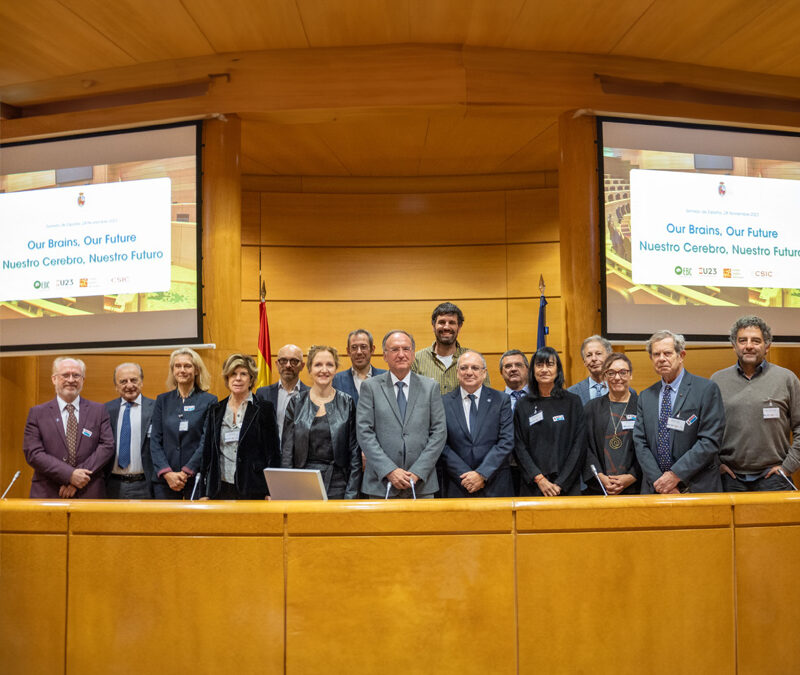On November 28th, the PROMS initiative had the privilege to participate in the symposium “Our Brains, Our Future: the value of brain research – from basic to clinical – to improve patient outcomes in Europe”, a key stakeholder meeting co-organised by the European Brain Council in partnership with the Spanish Brain Council (Consejo Español del Cerebro) and the Spanish National Research Council (CSIC), under responsibility of the Spanish Presidency of the Council of the EU.
Our SSC Co-Chair Paola Zaratin participated in an ad hoc session on “The challenge of addressing patients’ needs” (moderated by WG4 Co-leader Usman Khan). She had the opportunity to discuss:
- added value of increased patient engagement,
- how to overcome resistors and barriers to the process
- policy asks to European institutions for the future European brain research agenda.
Here are the key take-home messages from the discussions:
- Patient engagement will generate a return of investment/engagement for all the stakeholders surrounding the neurological community. This should materialise through predictive, preventive and personalized medicine. It is achieved through incorporating experiential knowledge of patients and through the assistance of digital technologies.
- There is a value for the new discipline of science with and of patient input in all kinds of research, including the one of preclinical, basic research taking place in the laboratory. Neuroethics can anticipate and address important ethical questions, while patients and citizens’ perspectives are instrumental to identify these questions.
- Significant actions to overcome barriers to patient engagement include: (i). stimulating an open attitude of researchers towards the experience of patients, (ii). securing dedicated resources and skills to enable institutional changes for meaningful engagement, (iii). Promoting engagement of broader communities through various research methods to better profile patients’ needs meeting equity, diversity and inclusion; (iv). secure interest of other stakeholders such as regulators and payors
- As policy asks, there is yet the need for an ever-stronger, long-term commitment for applying RRI principles into the future European brain research agenda. Research initiatives and projects need more guidelines and resources on how to further integrate engagement in the healthcare missions and in particularly in the brain research agenda. In line with the European Health Data Space (EHDS) we need to strive for the development of an integrated database of clinical, genetic, imaging and patient-reported measures capable of producing a “BARCODING” of all newly diagnosed cases of brain disorders. This remains a crucial, yet underfunded, often misunderstood and neglected project which could in reality have a massive impact on the lives of patients.
- In line with these messages, the PROMS Initiative looks forward to deploying an aligned strategy for 2024 and continuing its work on patient engagement through the scientifically acknowledged H2020 MULTI-ACT project framework.
- If we will enable meaningful multi-stakeholder patient engagement governance, research and patient generated data will have a high content of validity and can be used as indicators of the value-based healthcare decision-making approach proposed by the EU.
- In line with the above we will continue to engage relevant stakeholders to increase awareness of policy makers for the Patient Generated Data agenda for brain disorders.

